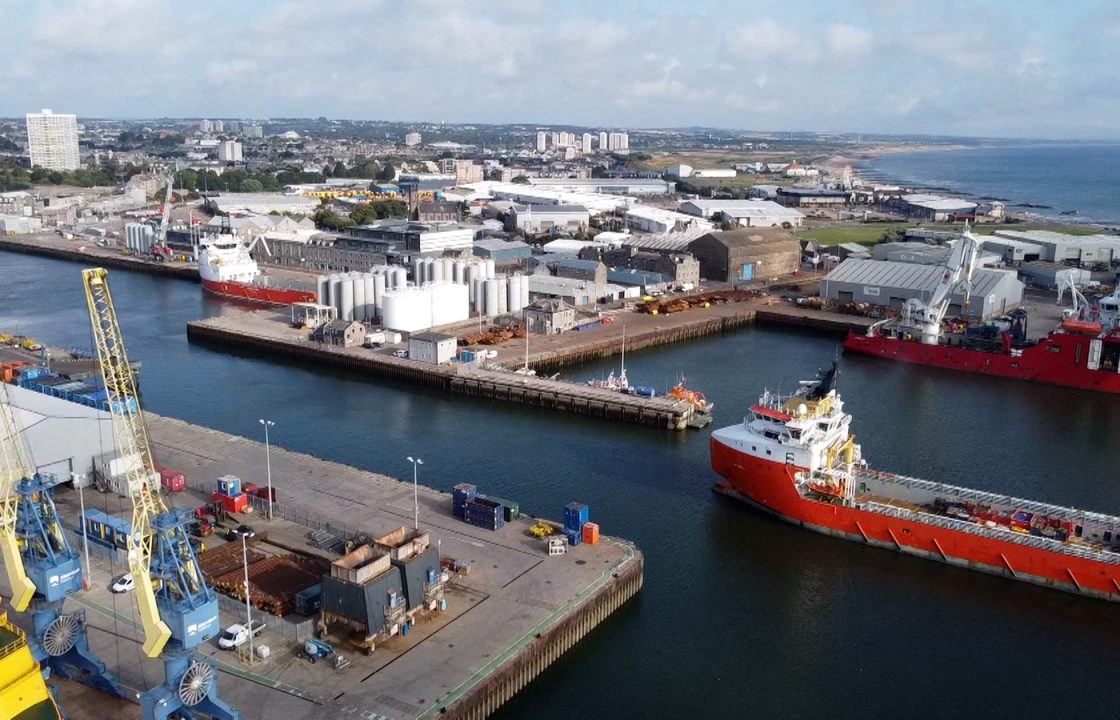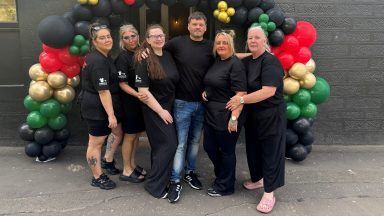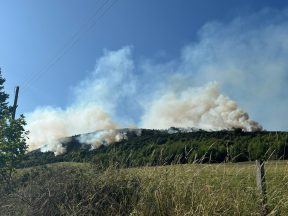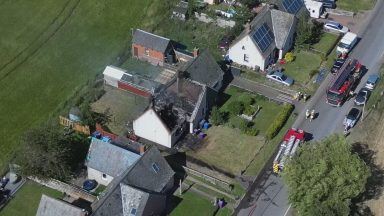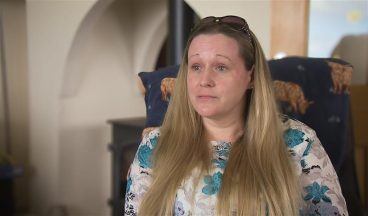Scotland has long tried to lead the world in energy.
Aberdeen has been known as the oil capital of Europe and the wider country is looking to capitalise on the race toward renewables.
Reaching net-zero by 2045 has become a well-known aim of the country.
However, the creation of and how we use our energy in the future will be crucial to achieving that aim.
Jacqueline Chinwe Stephen, a future energy leader at the World Energy Council, said: “Achieving net-zero by 2045 poses different challenges such as infrastructure development, investment and ensuring an affordable and reliable source of energy during the transition.
“It will require significant changes such as higher investment in renewable energy sources such as offshore, windfarms, solar and also hydro power.”
According to Scottish Government statistics, more than two million households in Scotland use gas to heat their homes.
Only around 11 per cent use renewables such as heat pumps or biomass boilers.
In Fife, SGN is helping to create a test site to try and heat homes using hydrogen.
The hydrogen is created using renewable electricity, so-called ‘green hydrogen’. Once complete, it will heat around 300 homes and give them an alternative to gas for cooking too.
However, hydrogen does pose some challenges too, including upgrades needed to parts of the network.
Chris Park, project director of the H100 project, said: “Hydrogen doesn’t produce any carbon when it’s burnt and when you make it from renewable energy it doesn’t produce any carbon at all.
“It offers the opportunity to decarbonise heat with minimal changes to customers’ homes and very similar experience to natural gas.
“It also gives us the advantage that it doesn’t generate any carbon monoxide when we’re using hydrogen appliances.”
However, in the debate over sustainable heating, some believe heat pumps are the solution.
Air source pumps take heat from the air outside and converts it to heat your home.
Those in the industry believe that some of the negative headlines around heat pumps have been unfair.
Experts stress it’s important that homeowners install the correct size of pump and admit that some homes need to be better insulated.
The cost though puts many off.
They can cost around £10,000 to buy and install.
However, the Scottish Government has announced grants worth £7,500 and another £1,500 for those in rural parts of the country.
Robbie Devine is from Aberdeen Air Source Heating, he said: “The cost is comparable to installing a gas boiler once you take the grant into consideration.
“Yes, they are expensive but at the end of the day you are future proofing your house and it is worth it.
“The running costs are much better in terms of efficiency. The units themselves are about three to five times more efficient than any fossil fuelled appliance.”
As we move towards net-zero, every business will need to look at its energy use and how to make it more sustainable.
Farming already does a lot to try and reduce its impact on the climate.
At Forest Farm in Aberdeenshire, they have already worked hard to make the business more sustainable.
In their shop, they encourage customers to reuse and recycle, use glass bottles for their milk and encourage cycling to their farm.
But they’ve also installed solar panels that help power the whole site.
Angus Willis, a director at the farm, said: “It has done a lot to bring down our costs.
“That was a big focus as well, with the soaring energy prices it was not just a sustainable piece but also a cost piece.
“But it has really brought our carbon footprint down and improve efficiencies and costs.”
There have been growing calls from campaigners to move faster to renewables and to dismiss future oil and gas drilling.
They’ve also accused the energy sector of overstating its moves to greener energy, so-called ‘green washing’.
But the sector says even when it comes to oil, they are trying to reduce emissions.
Niki Chalmers, head of technology services at the net zero technology centre in Aberdeen, she said: “What we’re doing is we are adapting some of the existing infrastructure out there to be able to burn a different type of fuel that doesn’t produce the same amount of emissions, so you can reduce it by up to about 75 per cent, so it’s a considerable drop in that.”
Currently, hundreds of thousands of homes in Scotland are deemed to be in fuel poverty.
Finding solutions to our climate issue but also a way of trying to help ease the burden of bills will be crucial.
There are choices to be made and costs to consider but the pace of change will need to increase if our energy will be sustainable in the decades to come.
Follow STV News on WhatsApp
Scan the QR code on your mobile device for all the latest news from around the country


